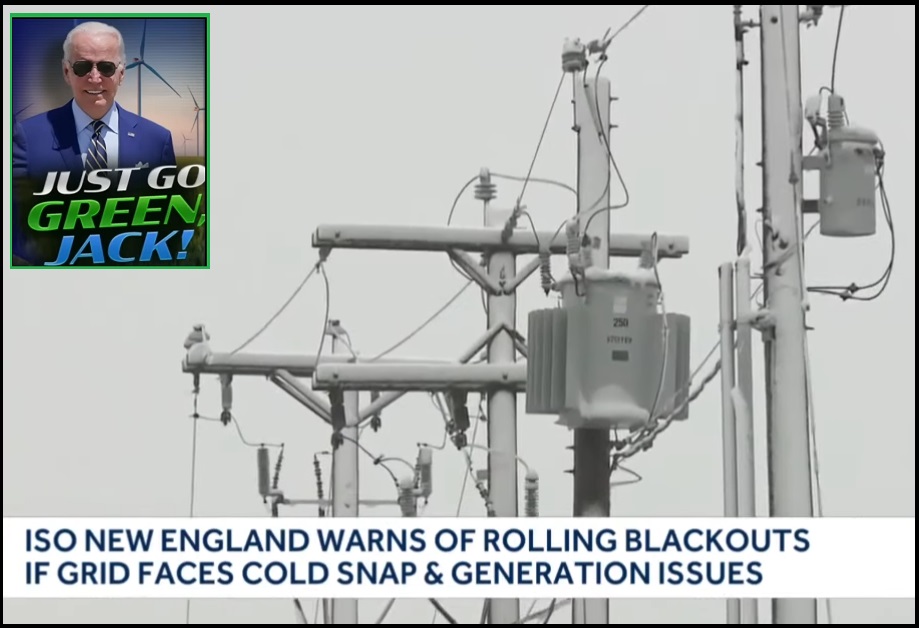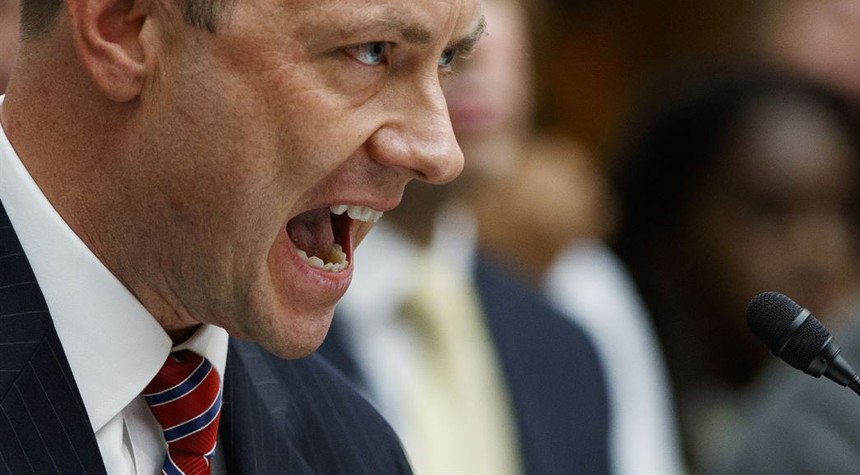The Virginia jury deciding the fate of Christopher Steele’s primary sub-source, Igor Danchenko, continues deliberations Tuesday on the false statements charges brought by Special Counsel John Durham. No matter the eventual verdict, however, like Durham’s prosecution of former Clinton campaign lawyer Michael Sussmann, the criminal case against Danchenko revealed extensive evidence of malfeasance by the Crossfire Hurricane team.
A catalog of these new revelations will be forthcoming, but one detail deserves a singular focus now: The criminal case against Danchenko confirmed that Crossfire Hurricane was never properly predicated and that instead, politics prompted the targeting of Donald Trump’s presidential campaign.
This conclusion follows from two facts: First, after Danchenko allegedly told a colleague he knew people who would buy classified information, the FBI did not launch a full investigation into the Russian until obtaining corroborating evidence. And second, as revealed last week during the Danchenko trial, the FBI refused to open an investigation into the Clinton-connected Charles Dolan, as some members of Special Counsel Robert Mueller’s team believed appropriate.
Revisiting Crossfire Hurricane
In December of 2019, the Department of Justice’s Office of Inspector General issued a scathing 478-page report on the DOJ and FBI’s abuse of the Foreign Intelligence Surveillance Act, or “FISA,” to obtain a court order to surveil former Trump campaign adviser Carter Page. While in the OIG report Inspector General Michael Horowitz identified 17 specific “inaccuracies and omissions” contained in the FISA application — there were actually eighteen — Horowitz also concluded the Crossfire Hurricane investigation had been properly predicated under the Attorney General Guidelines and had been opened for an “authorized purpose” and without any evidence of a political motivation.
Horowitz explained the purported predication for the investigation in the OIG report as follows:
The FBI opened Crossfire Hurricane on July 31, 2016, just days after its receipt of information from a Friendly Foreign Government (FFG) reporting that, in May 2016, during a meeting with the FFG, then Trump campaign foreign policy advisor George Papadopoulos “suggested the Trump team had received some kind of suggestion from Russia that it could assist this process with the anonymous release of information during the campaign that would be damaging to Mrs. Clinton (and President Obama).” The FBI Electronic Communication (EC) opening the Crossfire Hurricane investigation stated that, based on the FFG information, “this investigation is being opened to determine whether individual(s) associated with the Trump campaign are witting of and/or coordinating activities with the Government of Russia.”
The OIG report then noted it did not find any evidence indicating anything “other than the FFG information was relied upon to predicate the opening of the Crossfire Hurricane investigation.” Horowitz added that, while they hadn’t noted it in the opening communication, “the FBI officials involved in opening the investigation had reason to believe that Russia may have been connected to the Wikileaks disclosures that occurred earlier in July 2016, and were aware of information regarding Russia’s efforts to interfere with the 2016 U.S. elections.”
Moreover, according to the OIG report, the officials opening Crossfire Hurricane did not know of the various memoranda Steele had crafted and previously provided to an FBI liaison stationed in Rome; they would only learn of Steele’s election reporting weeks later. Thus, the OIG report concluded that Steele’s reports played no role in the opening of the Crossfire Hurricane investigation.
Following the release of the OIG’s report, Durham made the unprecedented move of issuing a press statement publicly disagreeing with Horowitz’s conclusion that the Crossfire Hurricane investigation was properly opened. Durham noted in his press release that, unlike the OIG, his “investigation is not limited to developing information from within component parts of the Justice Department.” Rather, Durham explained that his team’s “investigation has included developing information from other persons and entities, both in the U.S. and outside of the U.S.” Based on that evidence, Durham rejected the OIG report’s “conclusions as to predication and how the FBI case was opened.”
In a press release, then-Attorney General Bill Barr concurred with Durham’s conclusion, writing: “The inspector general’s report now makes clear that the FBI launched an intrusive investigation of a U.S. presidential campaign on the thinnest of suspicions that, in my view, were insufficient to justify the steps taken.”
While Durham and Barr both rejected the OIG’s conclusion that the FBI had acted appropriately in opening Crossfire Hurricane, their statements left unanswered the question of whether the Steele dossier played a role in the FBI’s decision to launch an investigation into the Trump campaign. During the Danchenko trial, however, Brian Auten, an FBI supervisor analyst who had joined the Crossfire Hurricane team at its inception, testified unequivocally that the FBI opened the investigation “based on information that came from a friendly foreign government … that the Trump team had received the suggestion that Russia could assist the Trump team” by providing information “that would be detrimental to Hillary Clinton and to President Obama.” Auten also testified that FBI headquarters did not receive the Steele reports until Sept. 19, 2016, even though Steele had provided the supposed intel to an FBI liaison earlier in Rome.
Given that, according to trial testimony, Auten is currently facing a suspension from the FBI for his conduct related to the investigation of Crossfire Hurricane, it seems unlikely Auten would lie about when FBI headquarters learned of the Steele dossier or about the bureau’s rationale for launching Crossfire Hurricane. But his then-higher-ups, such as Peter Strzok, Andrew McCabe, and James Comey, also may not have been forthright with Auten.
What the Danchenko Case Tells Us
But even assuming the Steele dossier had nothing to do with the FBI’s decision to launch the Crossfire Hurricane investigation, evidence disclosed over the course of the Danchenko case confirms Durham and Barr’s conclusion that the investigation was not properly predicated. Instead, politics prompted the Obama administration’s FBI to launch a full investigation into Donald Trump’s presidential campaign. The evidence comes in the form of disparate treatment, first between the Trump campaign and Danchenko.
As the special counsel revealed in a pretrial filing, in late 2008, while working at left-leaning D.C. think tank the Brookings Institution, Danchenko allegedly “engaged two fellow employees about whether one of the employees might be willing or able in the future to provide classified information in exchange for money.” One of Danchenko’s colleagues, identified only as “Employee-1,” told a government contact that Danchenko believed “he (Employee-1) might be in a position to enter the incoming Obama administration and have access to classified information.” Danchenko allegedly told Employee-1 “that he had access to people who would be willing to pay money in exchange for classified information.”
When the FBI learned these details, rather than open a “full investigation” into Danchenko, the FBI instead initiated a “preliminary investigation.” The FBI only converted the “preliminary investigation” “into a ‘full investigation’ after learning that the defendant (1) had been identified as an associate of two FBI counterintelligence subjects and (2) had previous contact with the Russian Embassy and known Russian intelligence officers.” The FBI eventually closed its investigation into Danchenko in 2010 after the FBI incorrectly believed Danchenko had left the country.
So, when confronted with derogatory information that a Russian national connected to a left-leaning D.C. think tank had raised the possibility of purchasing classified material, the FBI opened only a “preliminary investigation.” But when Alexander Downer, a then-Australian diplomat stationed in London, told the FBI that a young Trump volunteer adviser named George Papadopoulos indicated the Russians made suggestions they “could assist the Trump campaign with the anonymous release of information during the campaign that would be damaging to Hillary Clinton,” the FBI opened a “full investigation” into Papadopoulos, Page, and Paul Manafort, without obtaining any corroborating information, and later opened an investigation into Michael Flynn.
An even starker contrast is seen when comparing the FBI’s handling of longtime Democrat operative and Clinton crony Charles Dolan to the targeting of the Trump campaign.
After the Crossfire Hurricane investigation moved to Special Counsel Mueller’s command, two FBI agents, Brittany Hertzog and Amy Anderson, raised concerns about Dolan. As Hertzog explained at trial, Dolan had previously worked for a firm that managed a PR campaign for the Kremlin. Dolan also had connections to Dmitry Peskov who was Russian President Vladimir Putin’s press secretary. Additionally, Dolan had a business relationship with Olga Galkina — another Russian and a sub-source for the dossier — and traveled in 2016 to Cyprus to meet with her.
These facts raised concerns for the FBI agents, with Hertzog explaining that Peskov “was a longtime ally and close confidant to Russian President Vladimir Putin, and in that position, he would have likely overseen Russian propaganda and disinformation campaigns.” Thus, Dolan’s relationship with Peskov, as well as his work for Galkina, who was herself a sub-source for the Steele dossier, raised serious concerns.
Hertzog and Anderson both wanted to interview Dolan but were prevented from doing so by Mueller’s office, which instructed them “not to take further action on the matter involving Mr. Dolan and Mr. Danchenko’s relationship.” Anderson also compiled various reports on Dolan and others into “an opening communication” to open an investigation into Dolan. Such a probe was necessary for the agents to take further investigative steps.
Anderson testified that she submitted the opening memo to her supervisor, Supervisory Special Agent Joe Nelson. The document sat there “for approximately three or four weeks,” according to Anderson, and then Nelson told her “it was not going to be opened.” Thus no investigation was opened on Dolan.
In the case of the Democrat-connected Dolan, then, the FBI refused to open an investigation to determine whether Dolan might be feeding Galkina disinformation that she would then pass on to Steele, even though the FBI knew of Dolan’s connections to Galkina, Danchenko, and Putin’s press secretary — and even though the FBI knew of Russia’s intent to interfere in the 2016 election.
While there is no evidence that Dolan engaged in any illegal or unethical conduct, his connections to high-level Russian, those providing “intel” for the Steele dossier, and to Democrats and the Clintons, far surpasses the connections Papadopoulos and Page had with the Russians and with the Trump campaign. Yet the FBI launched a full investigation into the Trump campaign through Crossfire Hurricane, while Mueller’s office refused to allow its agents to further investigate Dolan.
Of course, the FBI will never admit it targeted the Trump campaign for political reasons, but how the government responded to the derogatory information about Danchenko — launching only a preliminary investigation — and handled suspicious intel about Dolan — ignoring it — provides ample proof that politics, not a legitimate purpose, prompted the FBI’s launch of Crossfire Hurricane.








